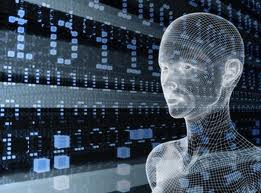Informatika
Dari Wikipedia bahasa Indonesia, ensiklopedia bebas
Informatika mempunyai konsep dasar, teori, dan perkembangan aplikasi tersendiri. Informatika dapat mendukung dan berkaitan dengan aspek kognitif dan sosial, termasuk tentang pengaruh serta akibat sosial dari teknologi informasi pada umumnya. Penggunaan informasi dalam beberapa macam bidang, seperti bioinformatika, informatika medis, dan informasi yang mendukung ilmu perpustakaan, merupakan beberapa contoh yang lain dari bidang informatika.
Dalam ruang lingkup yang lebih luas, informatika meliputi beberapa aspek:
- teori informasi yang mempelajari konsep matematis dari suatu informasi
- ilmu informasi yang mempelajari tentang cara pengumpulan, klasifikasi, manipulasi penyimpanan, pengaksesan, dan penyebarluasan informasi untuk keperluan sosial dan kemasyarakatan secara menyeluruh
- ilmu komputer dan teknik komputer yang mempelajari tentang pemrosesan, pengarsipan, dan penyebaran informasi dengan menggunakan teknologi informasi dan alat lain yang berbasis komputer.
- sistem informasi yang mempelajari mengenai teknik pengembangan suatu sistem untuk mengolah berbagai macam informasi yang ada.
- keamanan informasi ilmu yang mempelajari mengenai kajian proses mengamankan dan melindungi data pada yang ada pada sistem atau komputers.
InformaticsFrom Indonesian Wikipedia, the free encyclopediaPending changes shown on page Jump to: navigation, search
Information (UK: Informatics) is a discipline that studies the transformation of the fact that the data or information bearing on a machine based computing. This discipline includes several kinds of fields, including: information systems, computer science, information science, computer engineering and information applications in information systems management. In general informatics studies the structure, properties, and interaction of several systems used to collect the data, process and store the results of data processing, and display it in the form of information. Aspects of informatics broader than computer-based information systems, but still a lot of information that is not and has not been processed by a computer.
Informatics has the basic concepts, theories, and the development of separate applications. Informatics can support and are associated with cognitive and social aspects, including the effects and social consequences of information technology in general. Use of the information in a variety of fields, such as bioinformatics, medical informatics, and scientific information that supports the library, a few other examples from the field of informatics.
In a broader scope, informatics includes several aspects:
the study of information theory mathematical concept of an information
information sciences learn about the collection, classification, manipulation, storage access, and dissemination of information for public and community as a whole
computer science and computer engineering that studies the processing, archiving, and dissemination of information by using information technology and other computer-based tools.
information systems that learn about the techniques of developing a system to process a wide range of information.
the study of information security of the assessment process of securing and protecting the existing data on the system or komputers.

